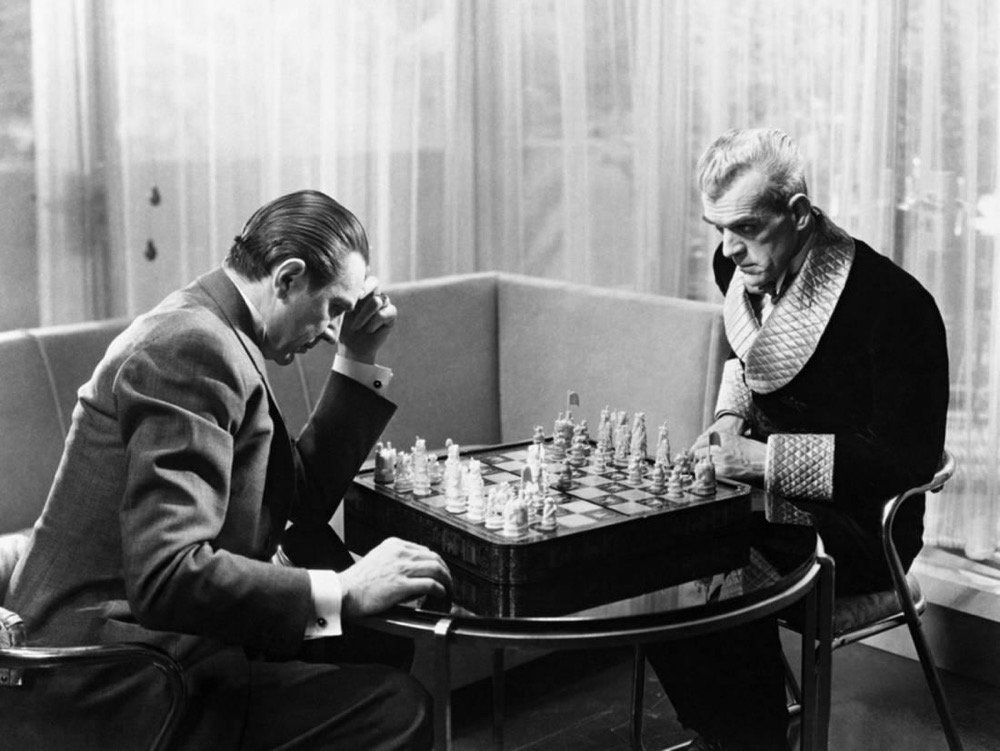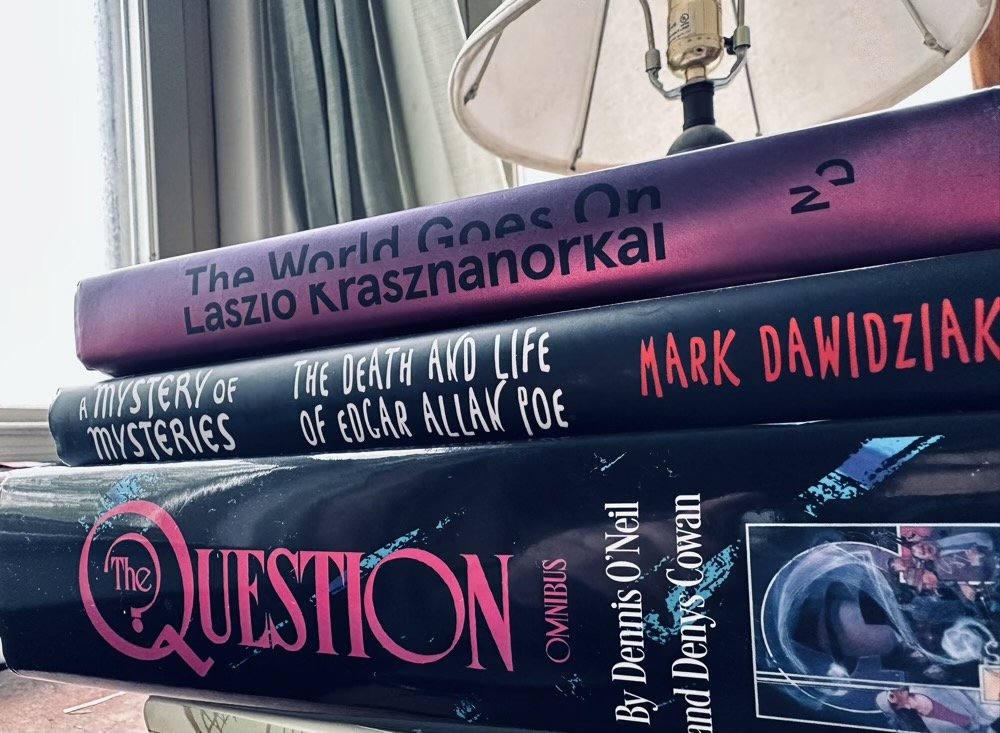THE BLACK CAT (Edward G. Ulmer, 1934)
(Directed by Edward G. Ulmer from a script by Peter Ruric "suggested by"* the story by Edgar Allan Poe; starring Boris Karloff, Bela Lugosi, David Manners, and Jaqueline Wells. Released 07 May 1934; watched 2023w41 via Criterion Channel)
"Suggested by" = not at all similar but the name is a nice touch.
While mostly forgettable until the last third, wanted to mention Lugosi's performance here: a rare turn as one of the good guys (ok, a vengeance-driven, cat-killing (via throwing knife, I believe), Karloff-flaying good guy but hey) that makes his Dracula typecasting all the more tragic. Sure, the accent could be limiting (something of a Schwarzenegger-before-Schwarzenegger situation), but he brought genuine presence and nuance to the role – unlike the good guy-good guy, David Manners, who, as in all of his appearances, made total lack of charisma a calling card.
Maybe this one was done a disservice by how closely I watched it to THE OLD DARK HOUSE, which - minus the Satanist cult angle that popped up in the rather excellent last third - delivered a similar narrative with far more panache and better performances all around.


